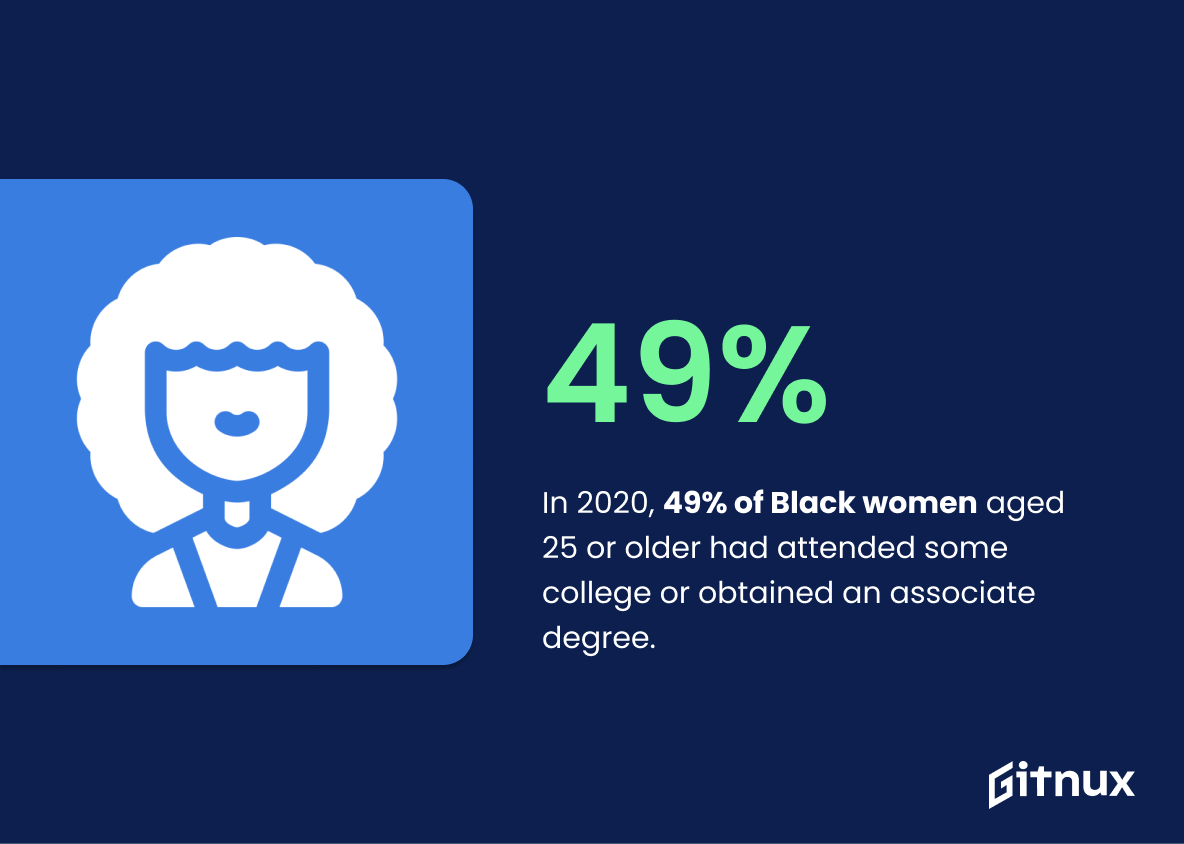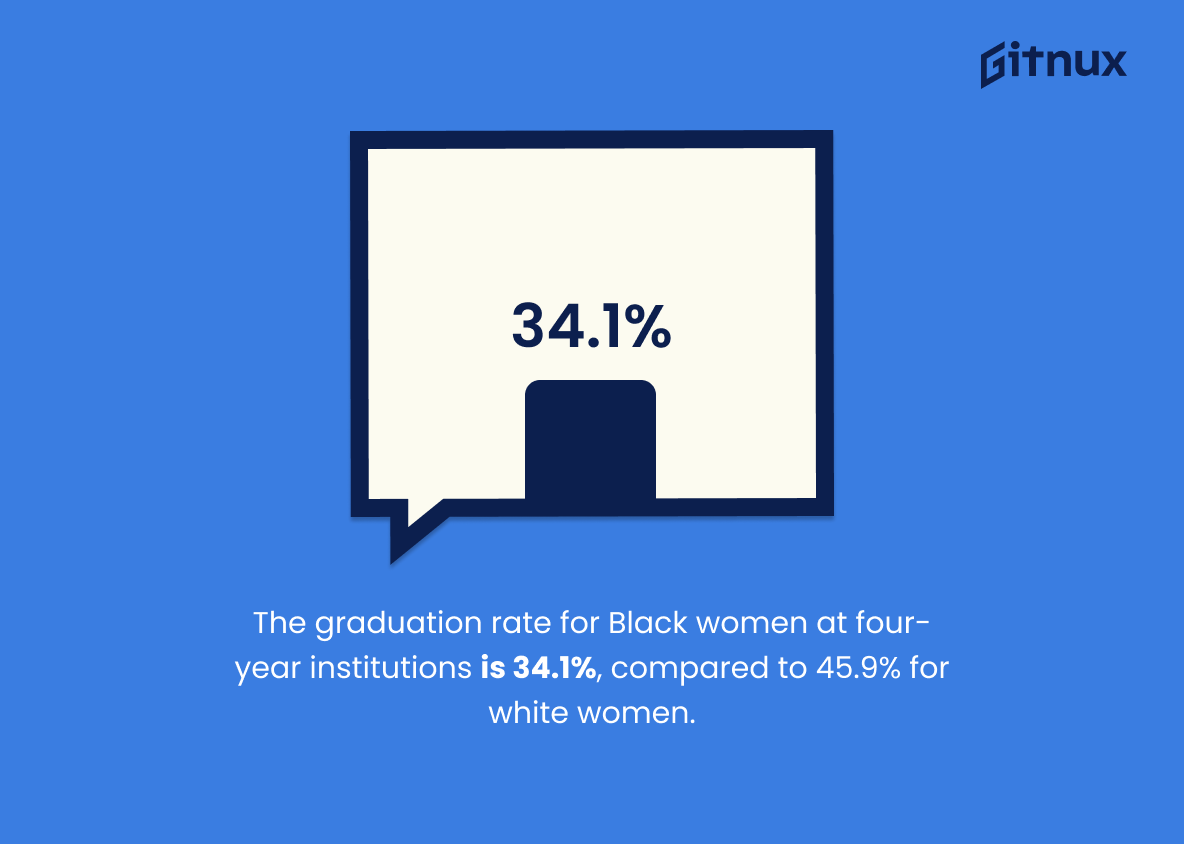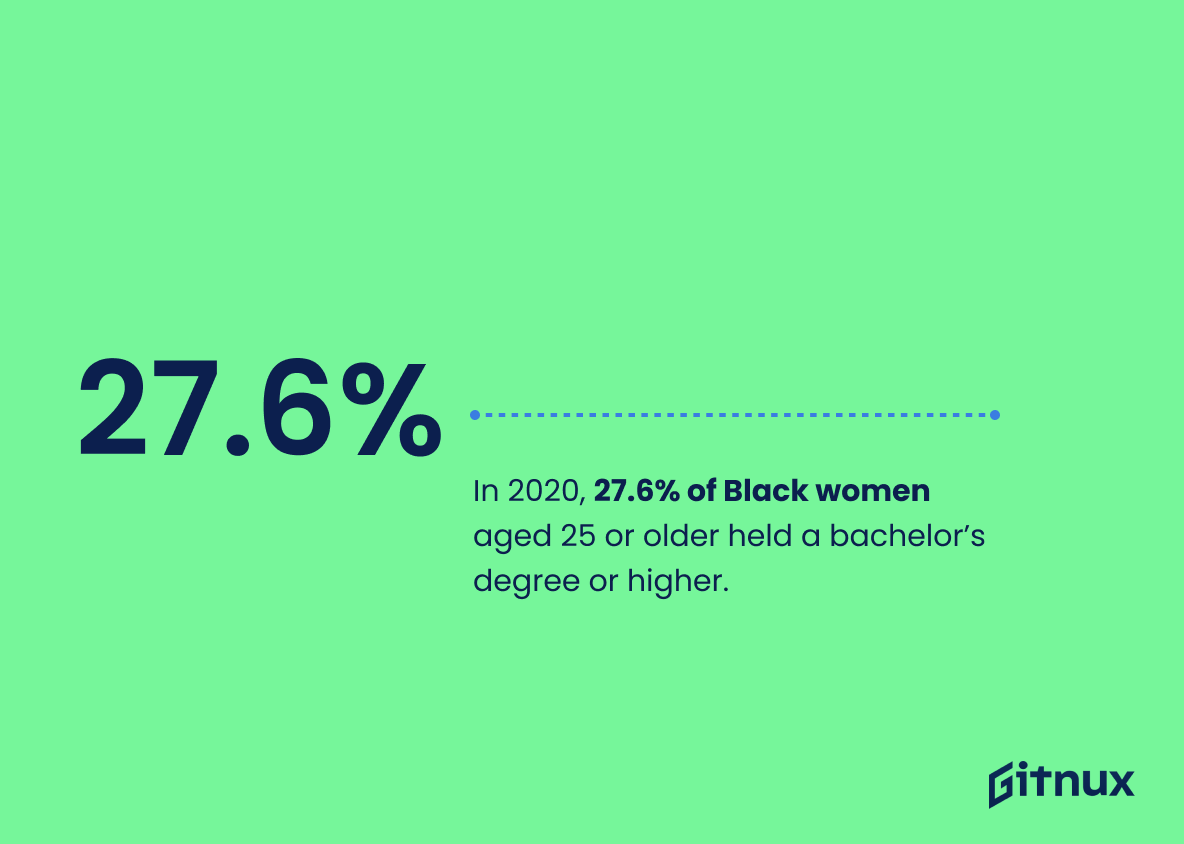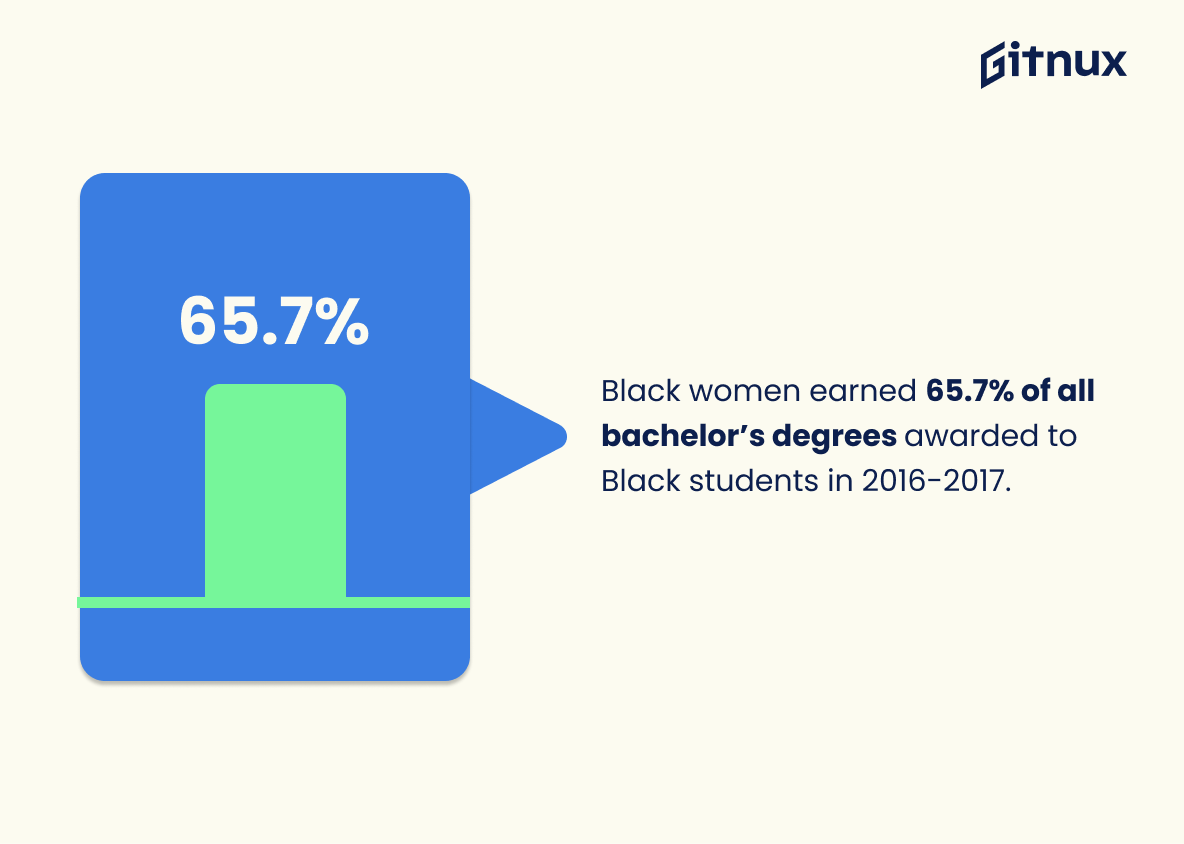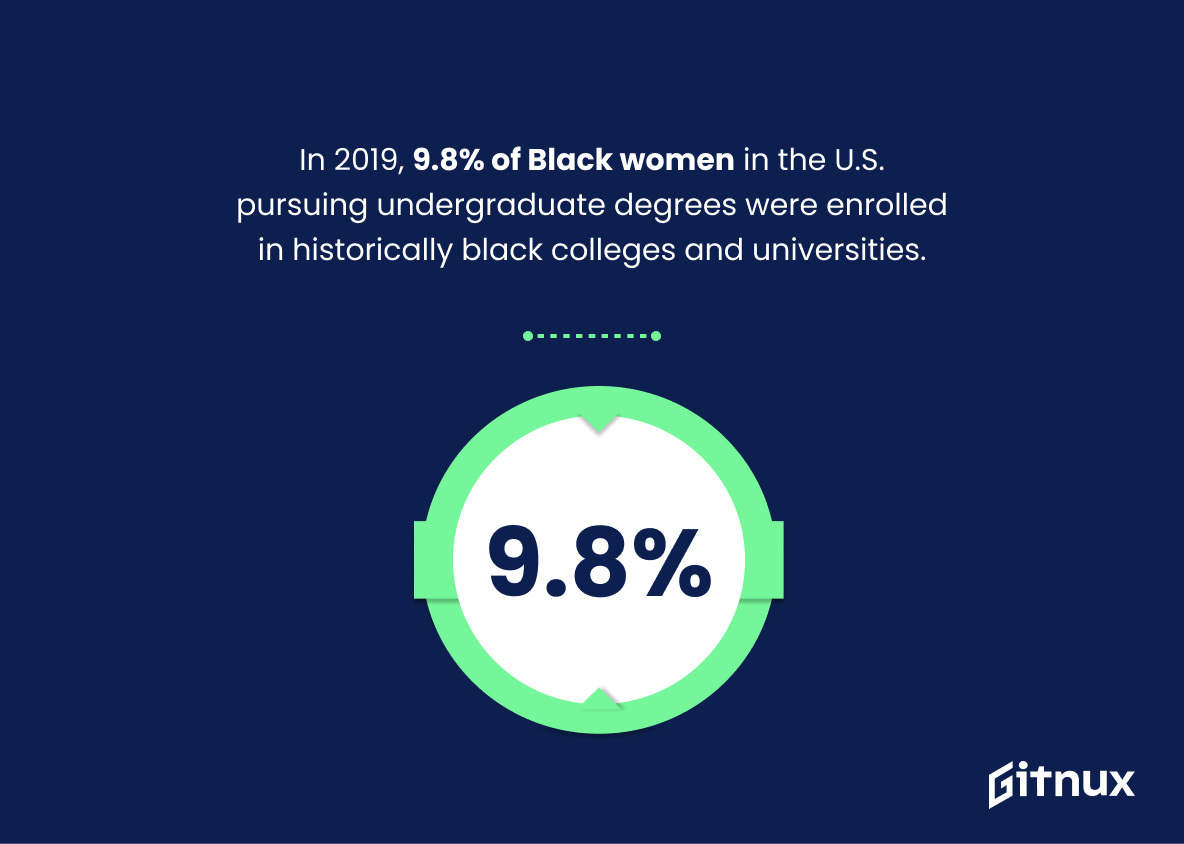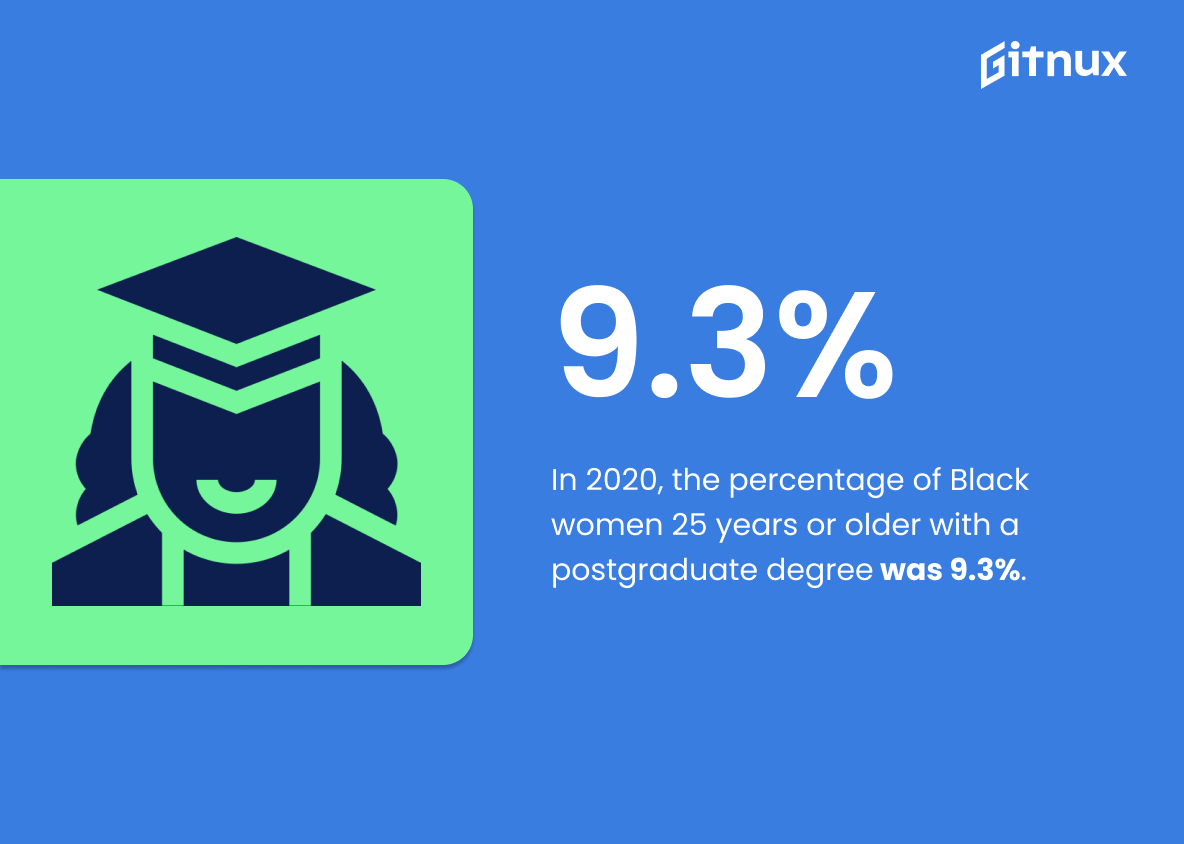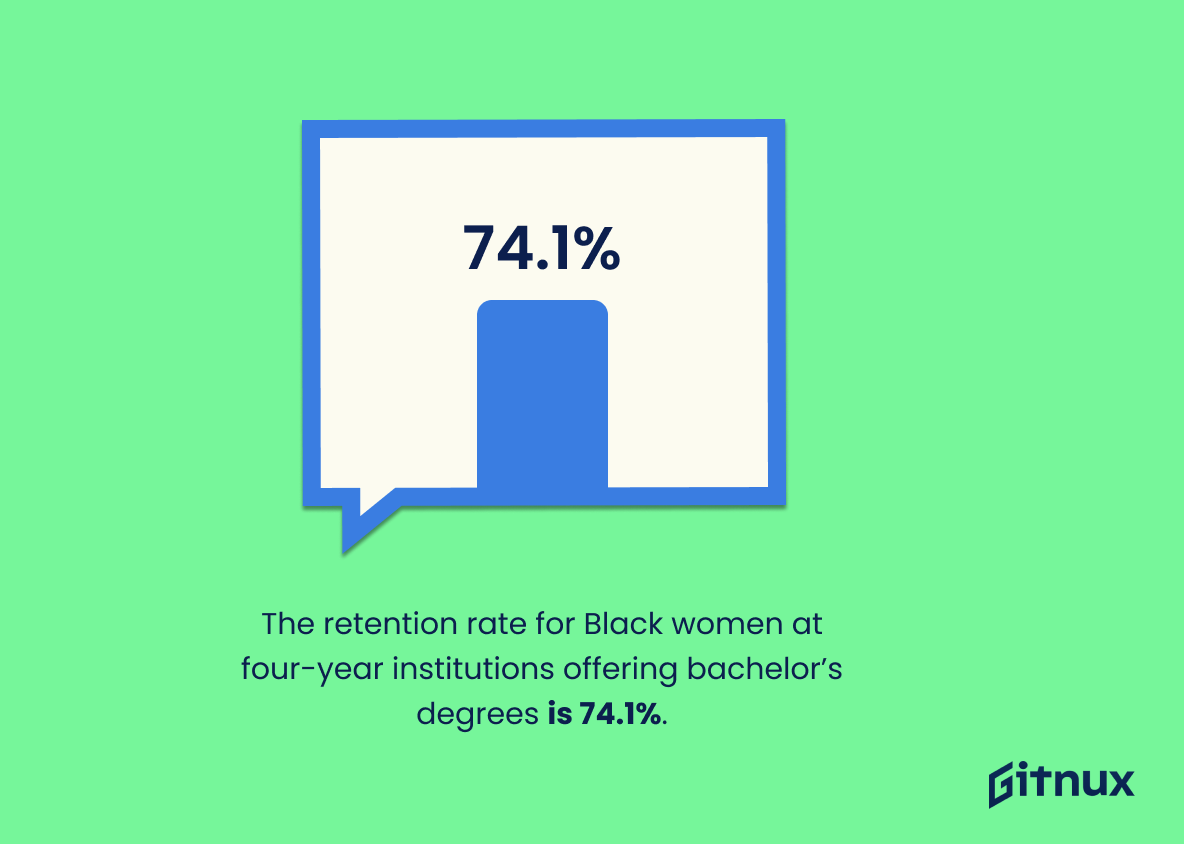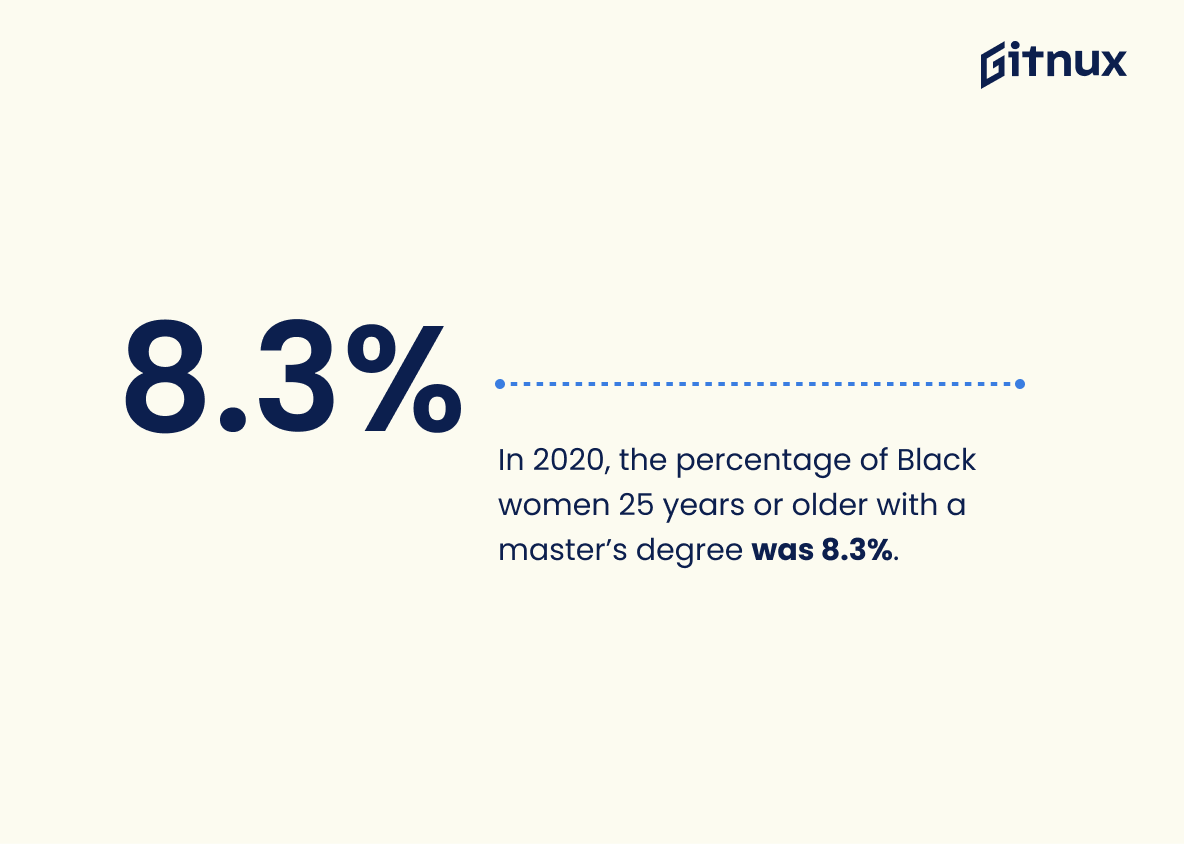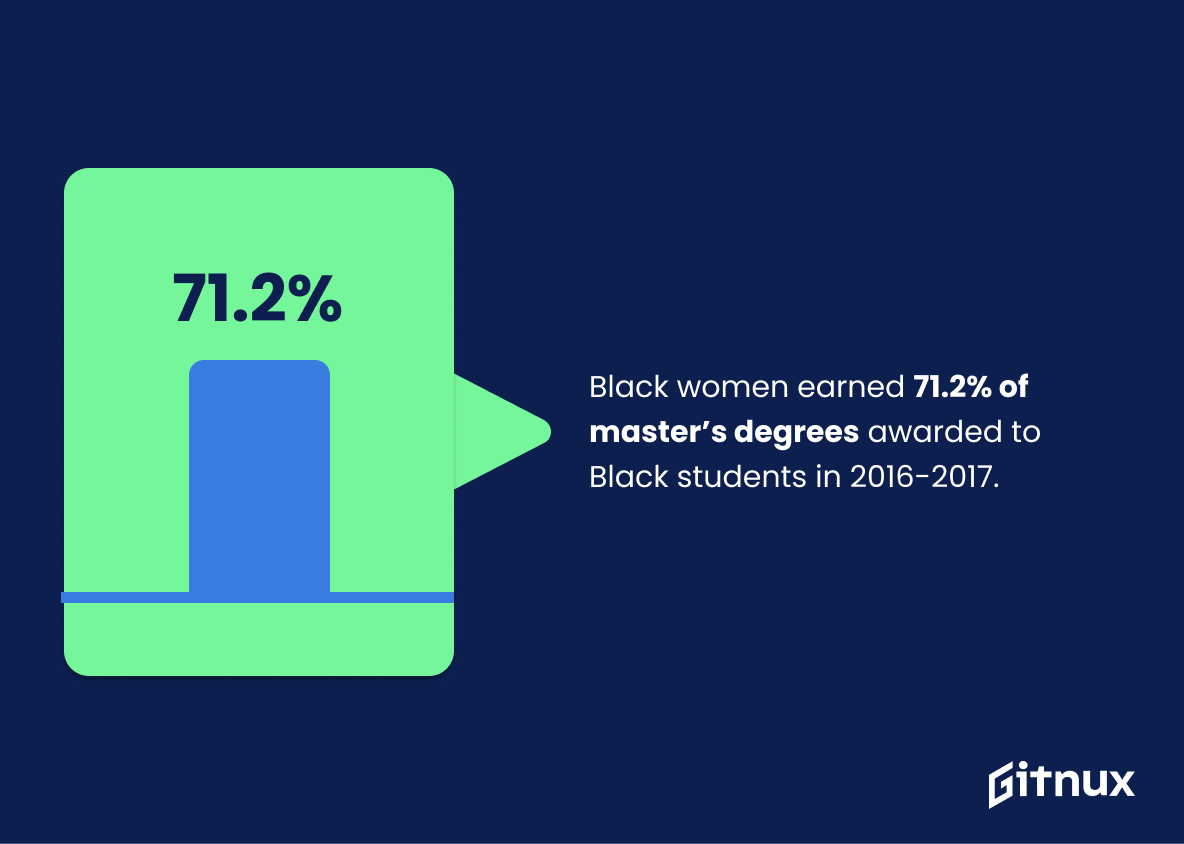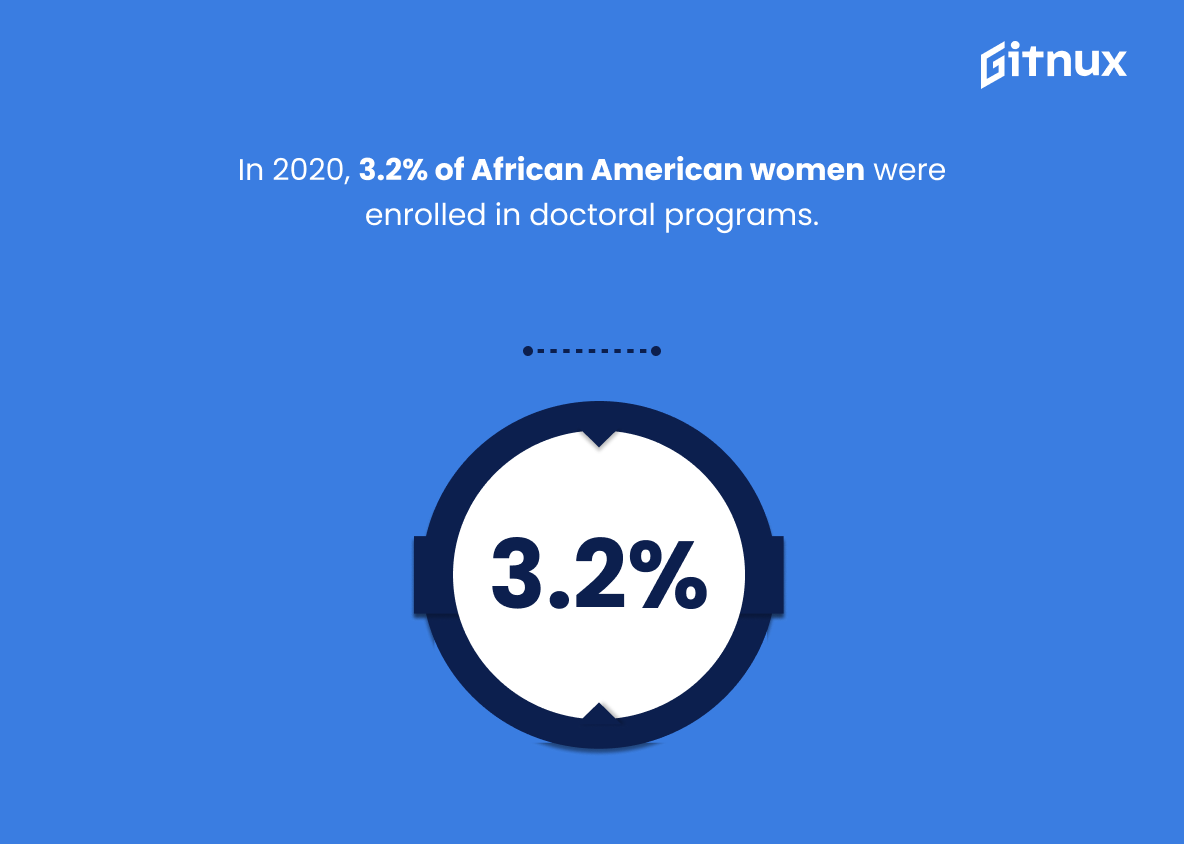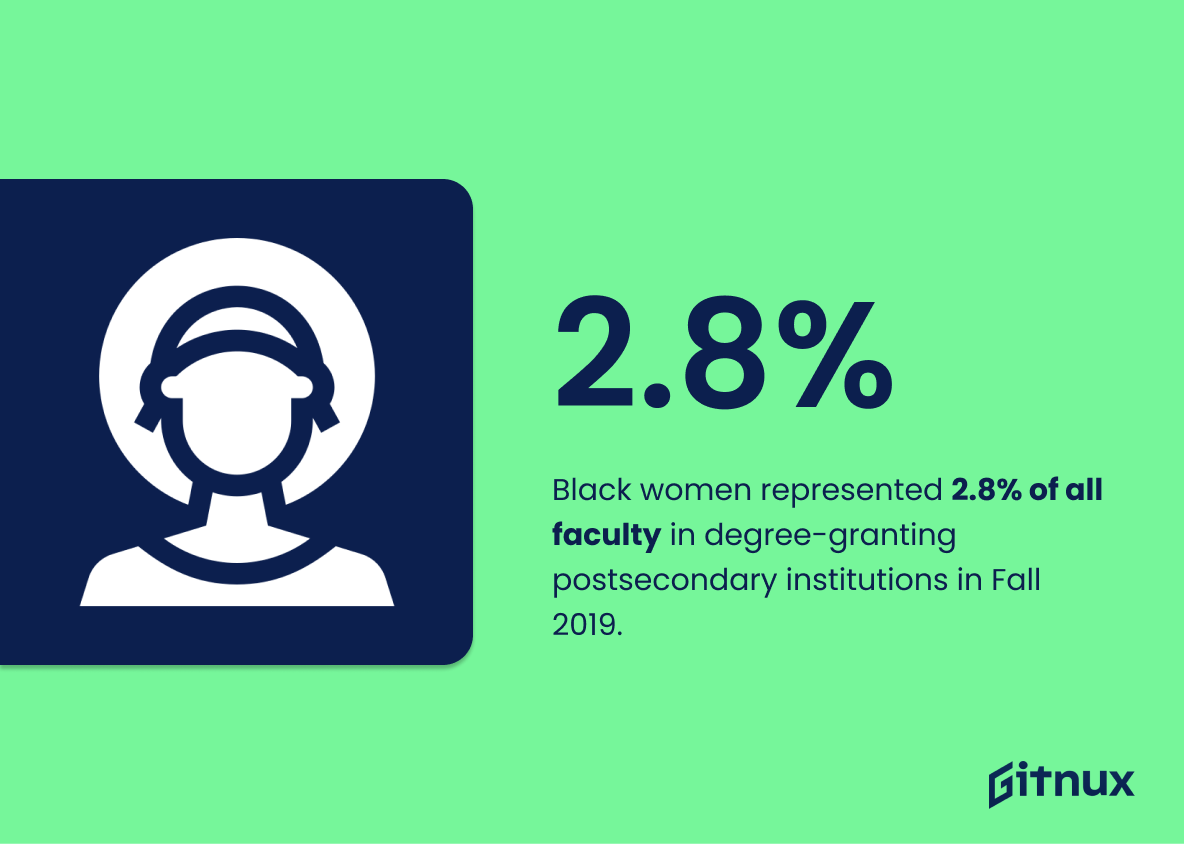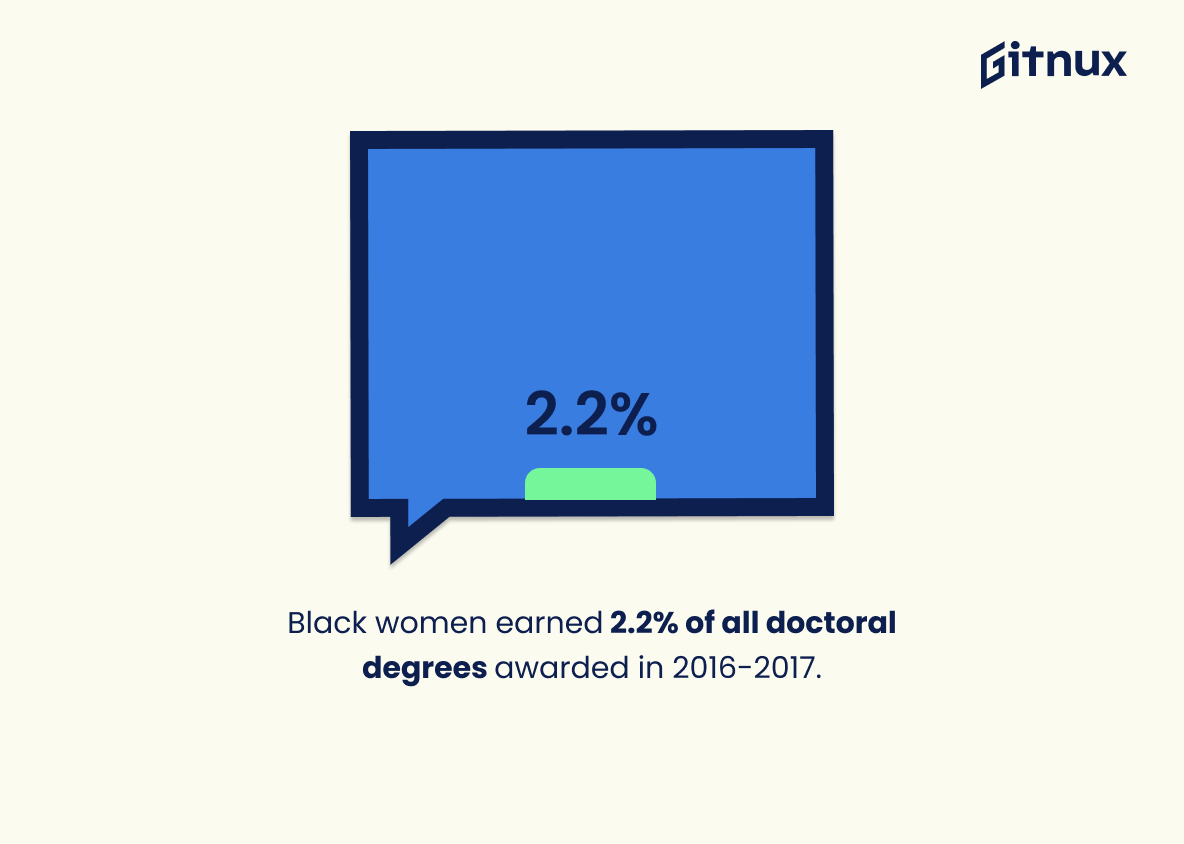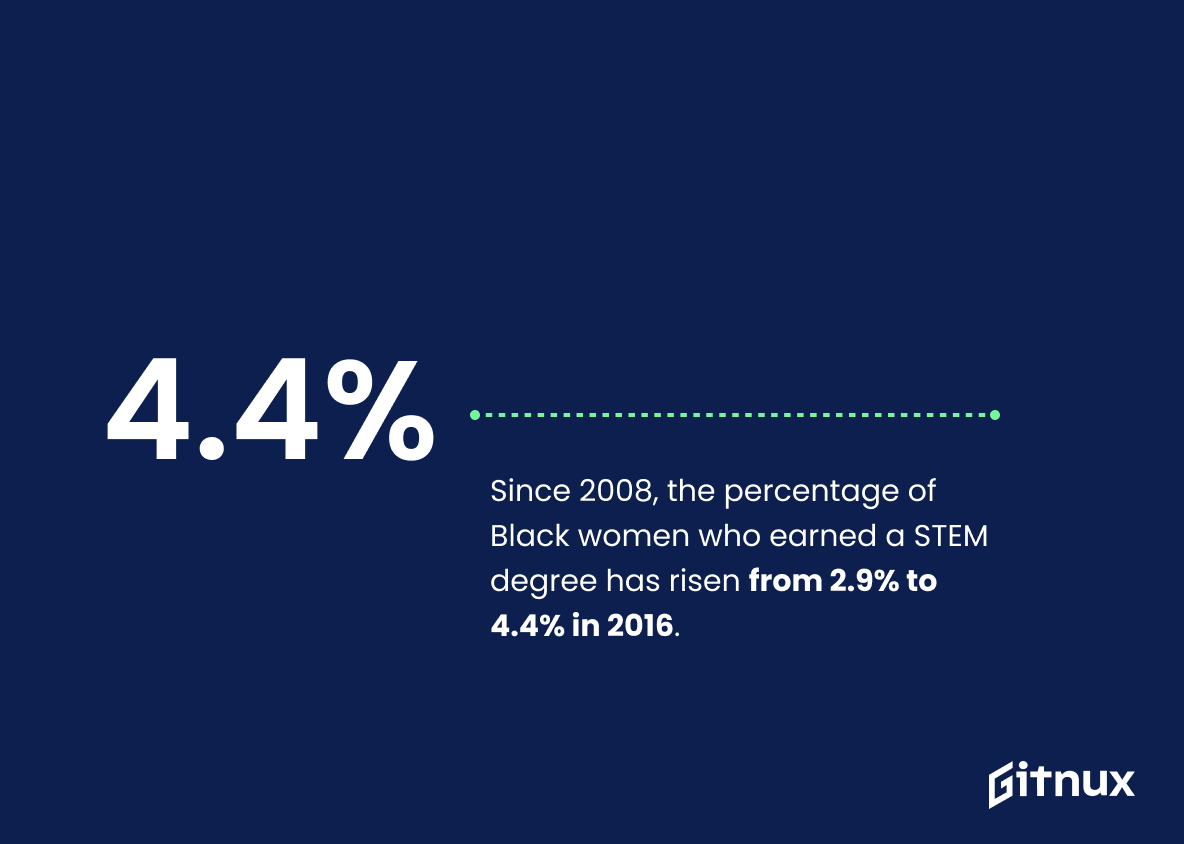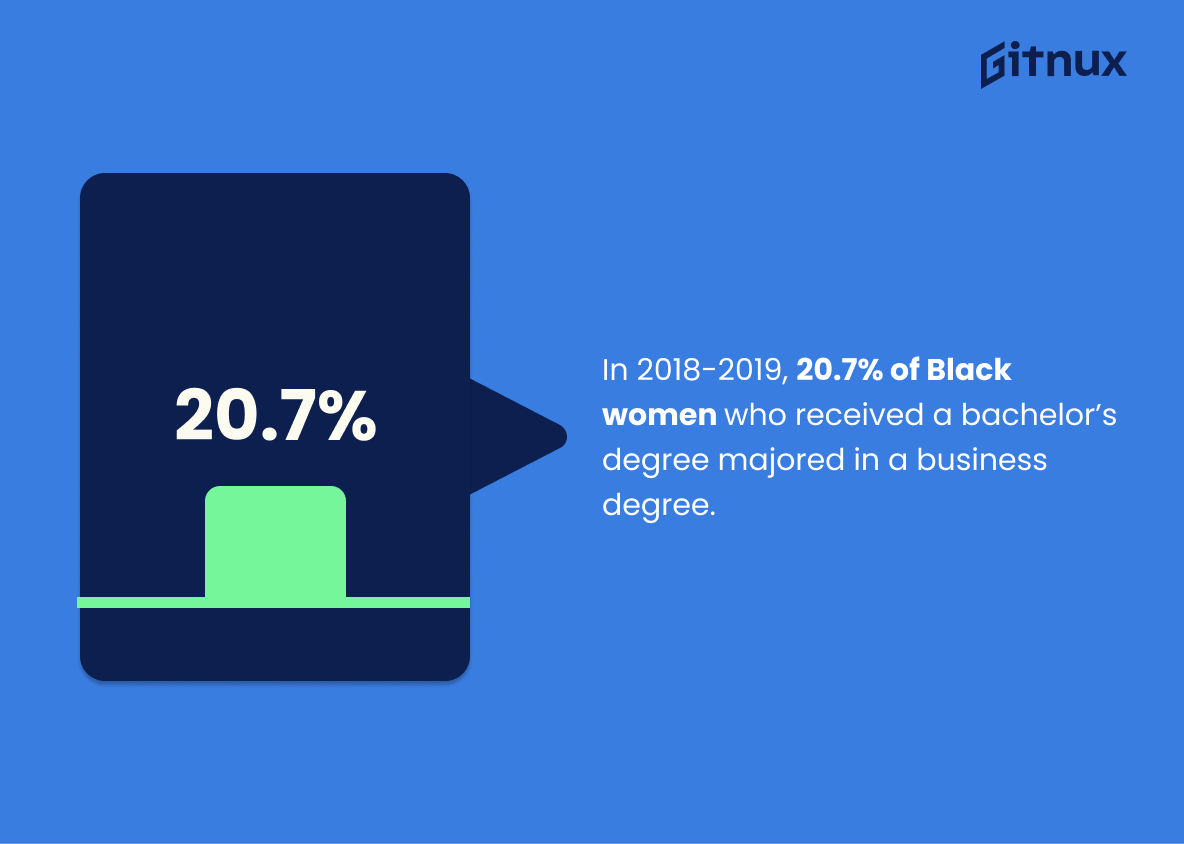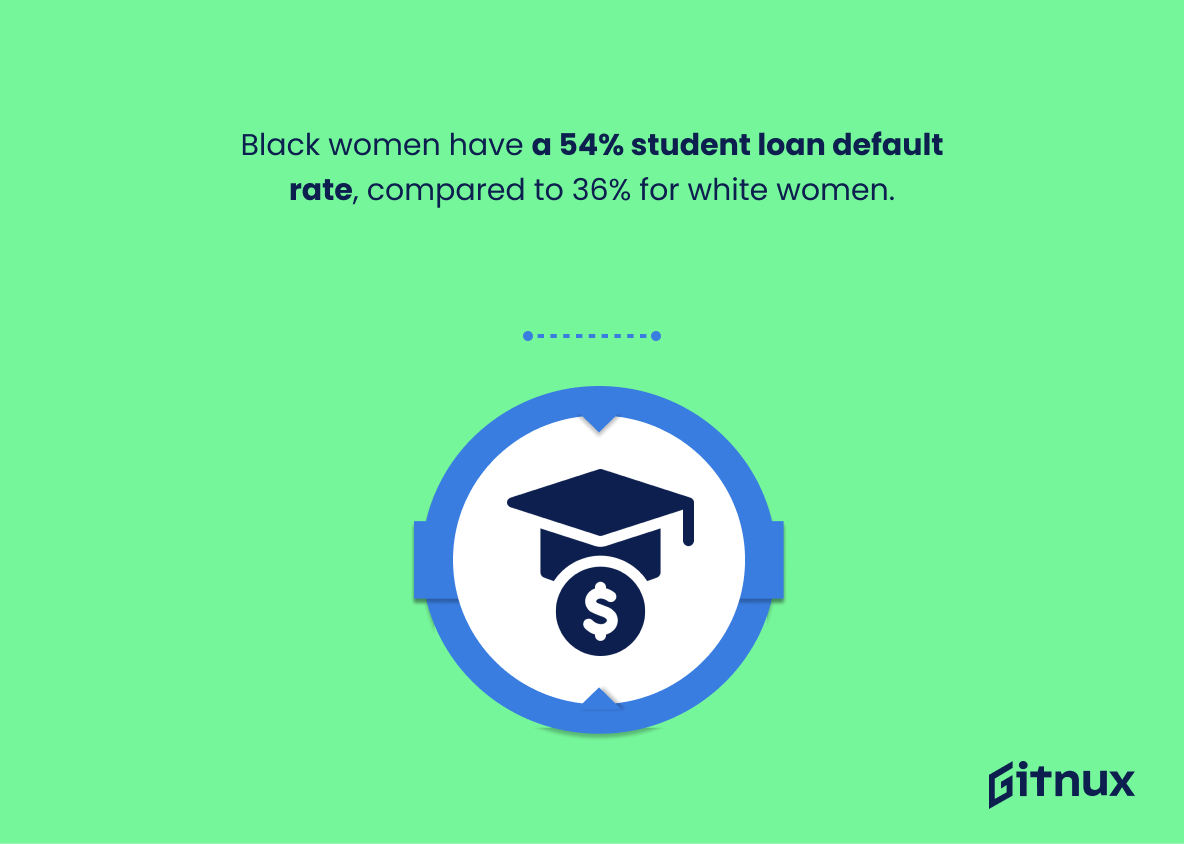Black women have made significant strides in higher education over the past few decades, but there is still much work to be done. This blog post will explore 20 statistics about Black women’s college experiences and outcomes, from enrollment numbers to graduation rates to faculty representation. We’ll look at data on associate degrees earned, bachelor’s degree attainment levels, master’s and doctoral degrees awarded, STEM majors pursued by graduates of four-year institutions, student loan default rates for African American female students compared with their white counterparts’, and more. By examining these figures we can gain a better understanding of how far Black women have come in terms of educational achievement – as well as what challenges they continue to face today.
This statistic is a powerful reminder of the immense potential of Black women in the United States. It speaks to the strength and resilience of Black women, who are often underrepresented in higher education. It also highlights the importance of providing access to higher education for Black women, as it can open up a world of opportunities for them. This statistic is a testament to the hard work and dedication of Black women, and it should be celebrated.
Black women earned 68.4% of all associate degrees awarded to Black students in 2016-2017.
This statistic is a testament to the hard work and dedication of Black women in higher education. It highlights the progress that has been made in terms of educational attainment for Black women, and serves as a reminder of the importance of continuing to support and empower Black women in their pursuit of higher education.
Black Women College Statistics Overview
In 2020, 49% of Black women aged 25 or older had attended some college or obtained an associate degree.
This statistic is a powerful reminder of the progress that Black women have made in higher education. It highlights the dedication and hard work of Black women to pursue higher education, despite the many obstacles they face. It also serves as a reminder of the importance of continuing to support and invest in Black women’s education, so that they can continue to make strides in their academic and professional pursuits.
The graduation rate for Black women at four-year institutions is 34.1%, compared to 45.9% for white women.
This statistic is a stark reminder of the disparities that exist between Black women and white women in higher education. It highlights the need for greater access to resources and support for Black women in order to ensure that they have the same opportunities to succeed in college as their white counterparts.
In 2020, 27.6% of Black women aged 25 or older held a bachelor’s degree or higher.
This statistic is a powerful reminder of the progress that Black women have made in higher education. It highlights the hard work and dedication of Black women to pursue higher education and the success they have achieved in doing so. It also serves as a reminder of the importance of continuing to support and invest in Black women’s education, so that they can continue to make strides in higher education and beyond.
Black women earned 65.7% of all bachelor’s degrees awarded to Black students in 2016-2017.
This statistic is a powerful reminder of the incredible academic achievements of Black women. It speaks to the hard work and dedication of Black women in higher education, and highlights the importance of providing them with the resources and support they need to succeed. It also serves as a reminder of the progress that has been made in terms of educational equity, and the need to continue to strive for greater access and success for all students.
In 2019, 9.8% of all Black women enrolled in undergraduate programs in the United States were enrolled in historically black colleges and universities.
This statistic is a powerful reminder of the importance of historically black colleges and universities (HBCUs) in providing educational opportunities for Black women. It highlights the fact that HBCUs are still a vital part of the higher education landscape, and that they are providing a valuable service to the Black community. This statistic also serves as a reminder of the need for continued investment in HBCUs, so that they can continue to provide quality education to Black women.
In 2020, the percentage of Black women 25 years or older with a postgraduate degree was 9.3%.
This statistic is a powerful reminder of the progress that Black women have made in higher education. It speaks to the dedication and hard work of Black women to pursue higher education and to achieve success in their chosen fields. It also highlights the importance of providing access to higher education for Black women, as well as the need for continued support and resources to ensure that they can continue to succeed.
The retention rate for Black women at four-year institutions offering bachelor’s degrees is 74.1%.
This statistic is a powerful reminder of the progress that Black women have made in higher education. It speaks to the resilience and determination of Black women to pursue their educational goals despite the many obstacles they face. It also highlights the importance of providing support and resources to Black women in order to ensure that they have the best chance of success in college.
In 2020, the percentage of Black women 25 years or older with a master’s degree was 8.3%.
This statistic is a powerful reminder of the progress that Black women have made in higher education. It speaks to the dedication and hard work of Black women to pursue higher education and to achieve success in their chosen fields. It also highlights the importance of providing access to higher education for Black women, as well as the need for continued support and resources to ensure that they can continue to succeed.
Black women earned 71.2% of master’s degrees awarded to Black students in 2016-2017.
This statistic is a testament to the hard work and dedication of Black women in higher education. It highlights the progress that has been made in terms of educational attainment for Black women, and serves as an inspiration for other Black women to pursue their educational goals. It also serves as a reminder that there is still work to be done in terms of closing the educational attainment gap between Black women and other groups.
In 2020, 3.2% of African American women were enrolled in doctoral programs.
This statistic is a powerful reminder of the progress that African American women have made in higher education. It speaks to the dedication and hard work of these women, who have worked to overcome the systemic barriers that have historically prevented them from achieving success in academia. It also serves as a reminder of the importance of continuing to support and invest in the educational success of African American women, so that they can continue to make strides in their academic pursuits.
Black women represented 2.8% of all faculty in degree-granting postsecondary institutions in Fall 2019.
This statistic is a stark reminder of the lack of representation of Black women in higher education. It highlights the need for more diversity in faculty positions, and the need for more opportunities for Black women to pursue higher education. It also speaks to the systemic racism and sexism that Black women face in the academic world, and the need for more equitable access to education.
Black women earned 2.2% of all doctoral degrees awarded in 2016-2017.
This statistic is a stark reminder of the systemic inequality that Black women face in higher education. It highlights the need for greater access to resources and opportunities for Black women to pursue higher education and achieve their academic goals. It also serves as a call to action for universities and other institutions to create more equitable pathways for Black women to pursue doctoral degrees.
Since 2008, the percentage of Black women who earned a STEM degree has risen from 2.9% to 4.4% in 2016.
This statistic is a testament to the progress that Black women have made in the STEM field. It shows that despite the challenges they face, Black women are continuing to pursue and achieve success in STEM-related fields. This is an encouraging sign that more Black women are being given the opportunity to pursue their dreams and make a difference in the STEM field.
In 2018-2019, 20.7% of Black women who received a bachelor’s degree majored in a business degree.
This statistic is significant in the context of Black Women College Statistics because it highlights the impressive achievement of Black women in the field of business. It demonstrates that Black women are not only capable of obtaining a bachelor’s degree, but also of excelling in a field that is traditionally dominated by men. This statistic serves as a reminder that Black women are capable of achieving success in any field they choose to pursue.
Black women have a 54% student loan default rate, compared to 36% for white women.
This statistic is a stark reminder of the systemic inequalities that Black women face in higher education. It highlights the fact that Black women are more likely to struggle with student loan debt, and that they are disproportionately affected by the burden of student loan debt. This statistic is a call to action to address the disparities in access to higher education and the financial burden of student loan debt for Black women.
African American female faculty members experience more stress on various factors such as role expectations, sense of achievement, and belief in their organization than their White female counterparts.
This statistic is a powerful reminder of the unique challenges African American female faculty members face in the college setting. It highlights the need for greater support and resources to help these women navigate the often difficult and stressful environment of higher education. By understanding the unique stressors they face, we can better equip them with the tools and resources they need to succeed and thrive in their roles.
Conclusion
The statistics presented in this blog post demonstrate the progress that Black women have made in higher education, as well as the challenges they still face. While there has been an increase in enrollment and degree attainment among Black women over time, disparities remain between them and their white counterparts when it comes to graduation rates, faculty representation, student loan default rates, and pay gaps. These findings highlight the need for continued efforts to ensure equitable access to educational opportunities for all students regardless of race or gender.
References
0. – https://www.airweb.org
1. – https://www.nces.ed.gov
2. – https://www.bls.gov
3. – https://www.aauw.org
4. – https://www.census.gov
5. – https://www.brookings.edu
